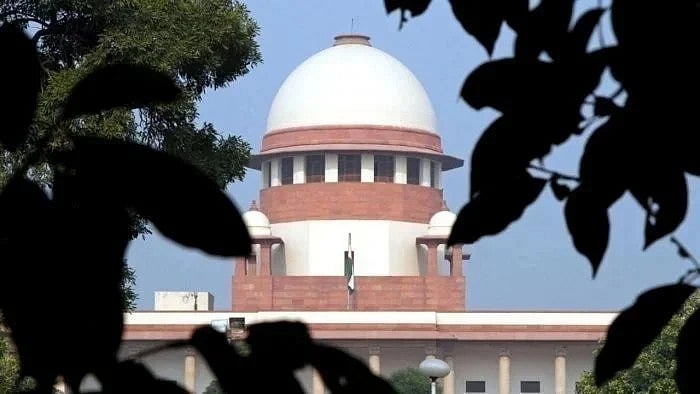
The Supreme Court of India.
Credit: PTI File Photo
New Delhi: The Supreme Court has said that the Electricity Act, 2003 does not envisage direct regulatory oversight over franchisees of a power distribution company and such franchisees can only be indirectly regulated through the distribution licensee.
Thus, an investigation under Section 128 can only happen in respect of a distribution licensee and not its franchisee.
A bench of Justices J B Pardiwala and R Mahadevan allowed an appeal filed by Torrent Power Limited against an order by the Appellate Tribunal for Electricity, New Delhi of July 28, 2016, which affirmed the UP Electricity Regulatory Commission's order for investigation of the appellant in its role as a distribution franchisee.
"We are dismayed to find that the Rama Shanker Awasthi, who sought an investigation against Torrent Power Limited, although, has levelled serious allegations against the UPPCL and the appellant, yet has not provided any reasons or documentation in respect of how they are in violation of tariff orders," the bench said.
Further, the court pointed out, even the expert committee report of January 09, 2017 does not shed any light on how tariff orders are being contravened by the appellant.
On the basis of 2009 and 2010 agreements, Torrent Power Ltd was appointed as distribution franchisee by the UP Power Corporation Ltd and Dakshinanchal Vidyut Vitran Nigam Ltd for the distribution of electricity in the urban area of Agra.
Dealing with the challenge to the APTEL's order, the bench said, the ERCs, being creatures of a statute, derive their jurisdiction and powers from the provisions of that statute i.e., the Act, 2003.
"Therefore, it would not be permissible for them to exercise powers not expressly vested in them," it said.
Having through the provisions, the bench said the investigation to be conducted by an authority under Section 128 is to be limited to only two eventualities, if the licensee fails to abide by the terms of its license, and if the licensee acts in contravention to the provisions of the Act, 2003 and the regulations thereunder.
Section 128 of the Electricity Act, 2003 empowered the appropriate commission to order an investigation into the affairs of a licensee or generating company if they are found to have violated the Act, its rules, regulations, or the conditions of their license.
The court concluded that the UPERC fell in serious error in entertaining the petition and passing the order constituting an expert committee and the APTEL also failed to look into the error committed by the UPERC.
"The threshold of “satisfaction” required to order an investigation under Section 128 was not met and even the expert committee appointed by the UPERC did not present any findings as regards these two considerations," the court said.
In its order, the APTEL said the 2003 Act does not have any provision for entertaining of a public interest litigation by the ERCs.
However, the tribunal was of the view that the case on hand was not a public interest litigation at all and concluded that the petition before the UPERC was maintainable. It also observed that the ERCs are empowered to exercise regulatory oversight on distribution licensees.
As a principle of law, the ERCs are not competent to entertain a matter on the singular ground of public interest, the court also held.
